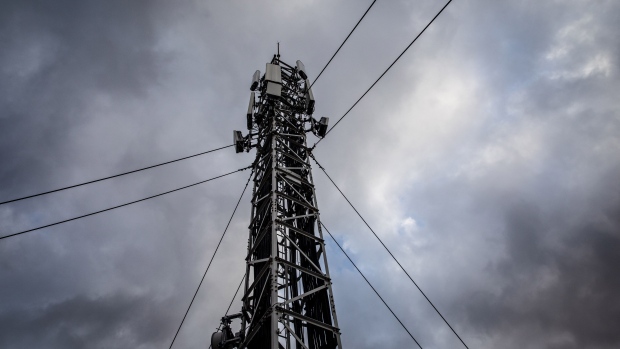Oct 24, 2023
EU Proposes Broader Telecom Reform As ‘Fair Share’ Falls Flat
, Bloomberg News

(Bloomberg) -- The European Union’s digital enforcer downplayed a push from phone companies to have large technology companies like Netflix Inc. and Alphabet Inc. help pay for internet infrastructure, while outlining a broader vision for the overhaul of the telecom sector.
Operators like Orange SA and Telefonica SA wanted major streaming sites to help foot the bill to roll out faster 5G networks and fiber. The idea, called “fair share,” generated major debate in the bloc, with big tech companies arguing that the plan constituted a new internet tax.
Internal Market Commissioner Thierry Breton considered legislation that could have backed a version of the “fair share” idea, however he faced steep opposition from numerous EU countries as his term as commissioner comes to an end next year.
On Tuesday he signaled that the proposal had been kicked down the road, likely beyond his office term, in a blow to telecom carriers who thought this was their opportunity to get tech companies to invest in their networks after decades of lobbying.
Breton was asked by journalists whether the “fair share” initiative had been shelved altogether, after the informal telecom ministers meeting in León, Spain. He said the commission would address the subject in a white paper that is expected in 2024, and it would also consider future legislation called the Digital Network Act.
“It is not a question of resolving a one-off problem, such as ‘fair share,’ but to project ourselves into the future to try to define the common vision that we need for our continent,” Breton said on Tuesday.
He outlined a much broader vision for telecom ministers in a closed-door meeting in Spain on Tuesday that could include consolidation, attracting venture capital and reducing the regulatory burden for operators, according to people familiar with the matter.
Spain’s Telecommunications Secretary María González Veracruz said it was intelligent to broaden the debate since member states were unable to agree.
“We can’t say it’s a missed opportunity as there was no opportunity on the table to begin with,” González Veracruz said. “What you have to do is build a feasible strategy and majorities, common ground, so that you can move forward.”
“It appears that Europe will be left behind again,” Roslyn Layton, executive vice president at independent research and analysis firm Strand Consult, told Bloomberg News via email. She added that other regions were making progress with fair share, referring to policies in South Korea and proposals in the US and the Caribbean.
Still, the fair share debate is not over. Italy’s Industry Minister Adolfo Urso backed the idea at the meeting, saying that “all market players benefiting from the digital transformation must contribute fairly and proportionately to infrastructure costs.”
According to Urso, the results of the European public consultation demonstrate that “there is substantial polarization among sector stakeholders.” He called for the commission to further analyze the impact that big tech firms’ internet traffic has on networks.
“Investment in connectivity is now a priority at the top of the political agenda,” Alessandro Gropelli, deputy director general at ETNO, a telecom lobby group, told Bloomberg News.
Breton also raised other concerns for the future of the sector in the closed-door meeting. For example, while Europe has telecom hardware champions with Sweden’s Ericsson and Finland’s Nokia, Breton also stressed that the EU can’t lose its leadership for future generations of equipment for technologies like 6G.
The commission is also looking into how to fund and strengthen undersea cable infrastructure, Breton told the ministers.
--With assistance from Thomas Seal.
(Adds analyst comment in tenth paragraph, context throughout)
©2023 Bloomberg L.P.





